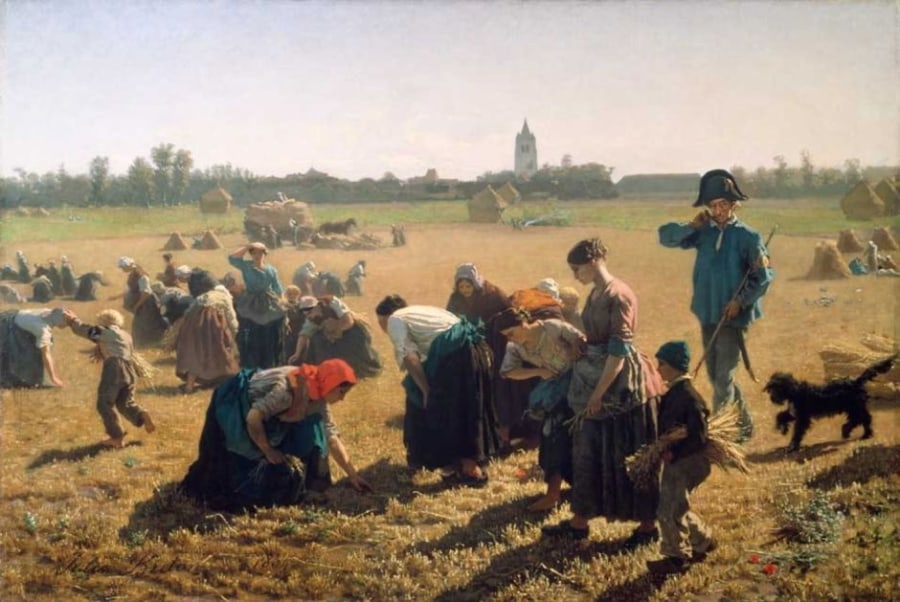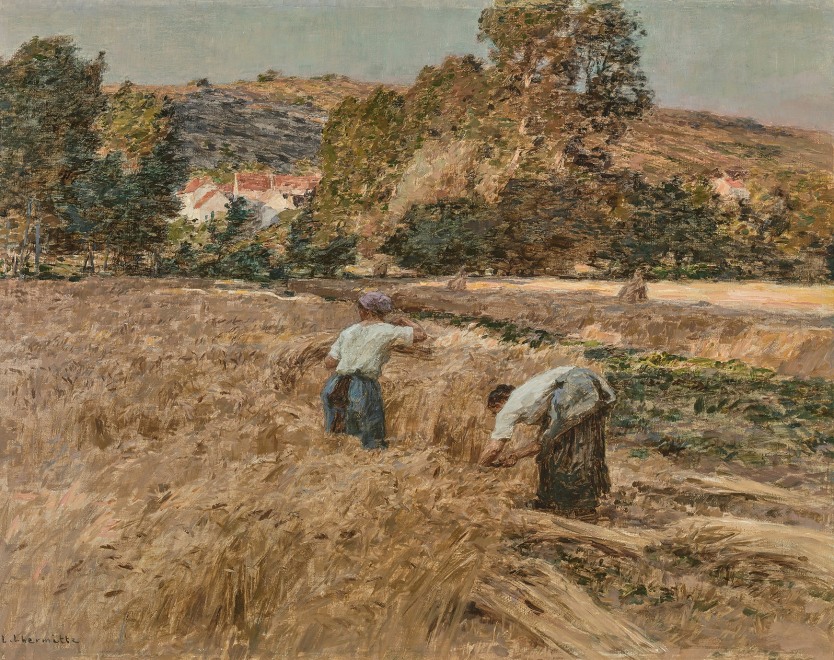Tales From the French Farm
“When you reap the harvest of your land, do not reap to the very edges of your field or gather the gleanings of your harvest. Leave them for the poor and for the foreigner residing among you. I am the LORD your GOD.” Leviticus 23:22
Jules Breton’s large-scale painting of gleaners from the Salon of 1855 coincided with the French parliamentary debate over the peasant’s right to glean; by law a task reserved for the poor, the handicapped, women and young children. In the mid 1850s, there was a movement afoot in France to end the peasant’s right to glean. Could it have been Breton’s Salon painting, or others like it, that drew attention to the debate and allowed gleaning to continue – showing how art can affect popular opinion and policy? Much like the popular Broadway hit, Hamilton saved Alexander Hamilton from being removed from the $10 bill!
Farm life in France during the 19th century stayed pretty much constant. The everchanging seasons provided specific labors of the months as had been documented by calendar pages from illuminated manuscripts centuries earlier. Late summer would have signified harvest time, one of the busiest seasons on the farm calendar, when the wheat needed to be threshed, gathered and stacked, followed by gleaning. This would have been a familiar sight for Léon Lhermitte and Daniel Ridgeway Knight. For Charles Emile Jacque it was springtime and the arrival of newborn lambs. And Victor Gilbert’s Paris market in winter, with its colorful display of cabbages, leeks and carrots shows the daily routine of the market vendors, who arrive from the countryside, their carts filled with the bounty of their potagers.
Farm life in France also stayed pretty much consistent into the early decades of the 20th century, with not much changing from the previous 100 years. It is perfectly depicted in the 2017 French film, The Guardians. We loved this beautiful movie (trailer: https://www.youtube.com/watch?v=ZM-f1wMCCu4 ), which is clearly an homage to the French peasant painters of the 19th century.





